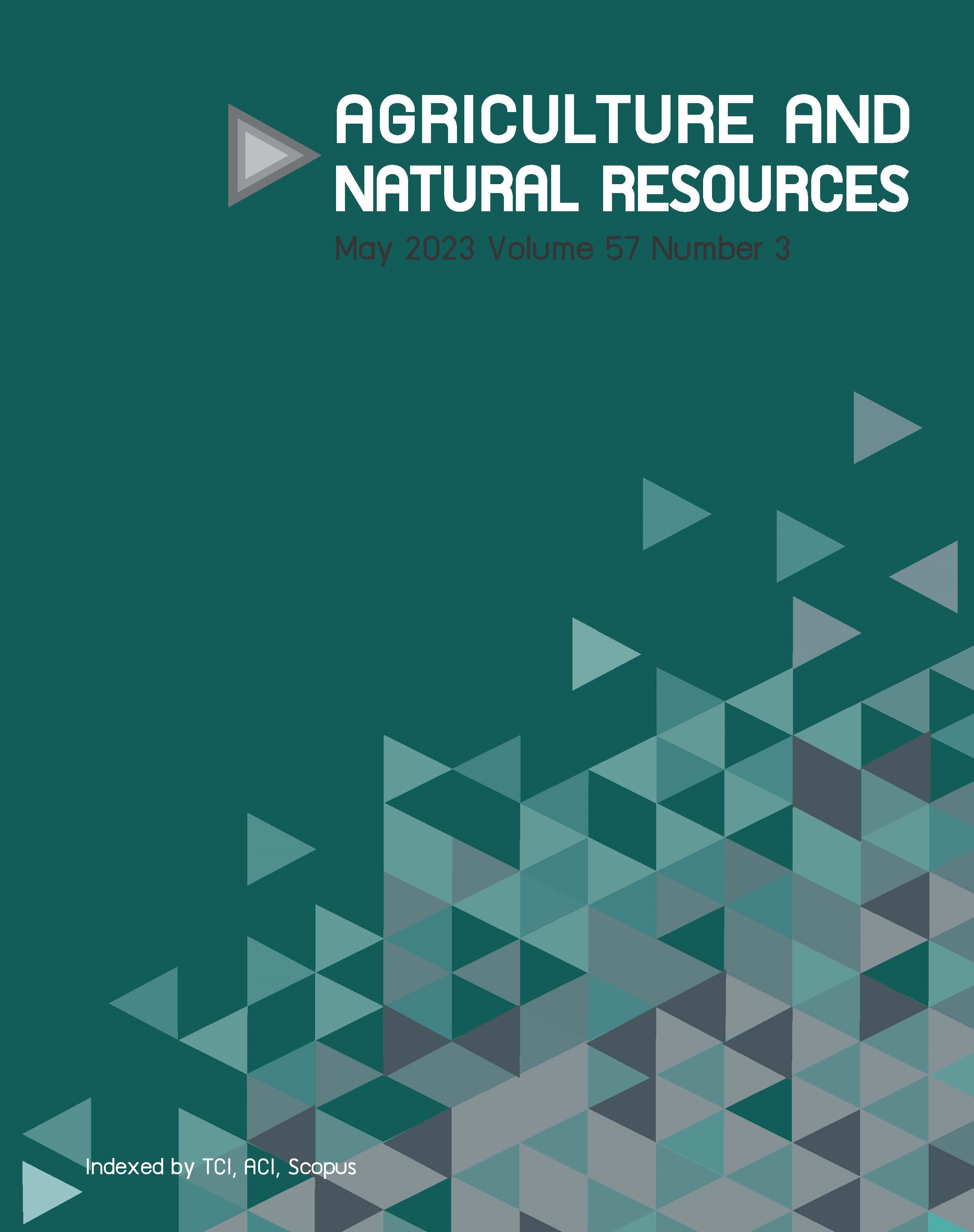Learning from global research to analyze contributing factors in rice yield gap: Bibliometric approach towards Indonesia’s self-sufficiency
Keywords:
Bibliometric, Nutrient, Rice self-sufficiency, VOSviewer, Water managementAbstract
Importance of the work: The rice yield gap is enormous and under ongoing pressure because consumption keeps increasing. Studies on the global reasons for this gap are inconclusive.
Objectives: To analyze the causative factors of the global rice yield gap and Indonesia’s strategies to fulfill its food requirements.
Materials & Methods: Yield gap factors were identified from the Scopus database using the bibliometrics approach with the VOSviewer package, based on co-occurrence analyses to map the main factors. From this map, yield gap factors were calculated and
reorganized. Articles from 2022 were used to identify future trends in research.
Results: In total, 275 documents were selected from the Scopus database, published in 256 journals (93%), with 7% from other sources, such as books, book chapters and proceedings. China, India and the USA were the top-three nations in this yield gap research. However, Indonesian-based research was still minimal. Yield gap was a major problem for smallholders (24%), in lowlands (56%) and for farmers in Asia (20%). The results showed that the rice yield gap was directly related to agricultural practices, farming systems and climate change. Nutrient was the primary factor contributing to the increased yield gap, followed by water management, cultivar, weed control and crop rotation. Increasing farmers’ capacity to undertake good agricultural practices was the key to supporting rice self-sufficiency.
Main finding: Research connected to nutrients and water management should be future trends because they are the main factors in Indonesia’s low paddy yield. Furthermore, future research regarding good agricultural practices is needed to support achieving selfsufficiency in Indonesia.
Downloads
Published
How to Cite
Issue
Section
License
Copyright (c) 2023 Kasetsart Universityonline 2452-316X print 2468-1458/Copyright © 2022. This is an open access article under the CC BY-NC-ND license (http://creativecommons.org/licenses/by-nc-nd/4.0/),
production and hosting by Kasetsart University of Research and Development Institute on behalf of Kasetsart University.







